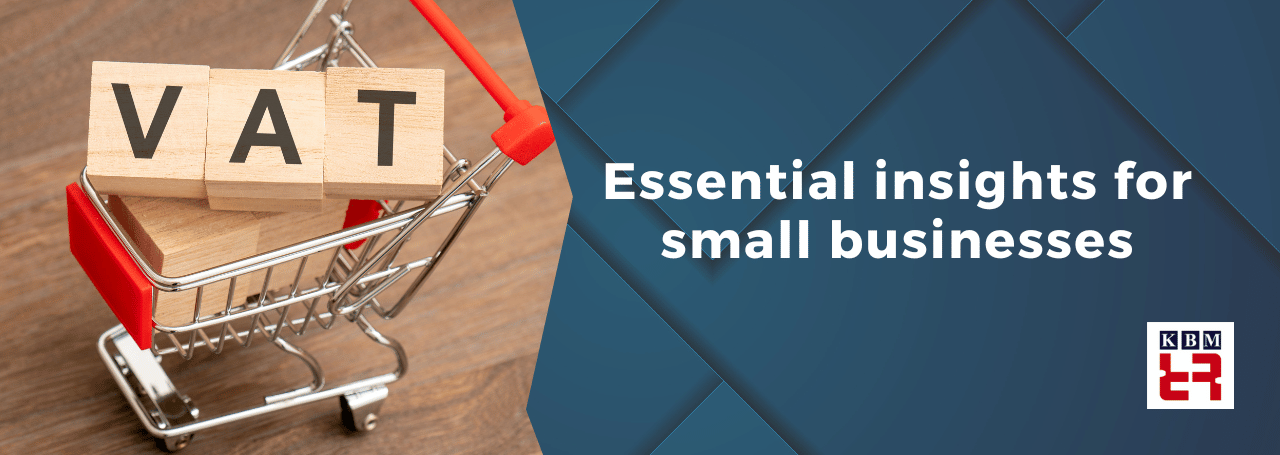Understanding VAT: Essential Insights for Small Businesses
Value-added tax (VAT) is a crucial aspect of financial management for UK businesses. It's a tax imposed on the increase in value of goods and services as they move through each stage of production or distribution.
Comprehending VAT rules and regulations is not just a legal requirement, but a crucial step for small businesses to avoid penalties and manage their finances effectively. In this comprehensive guide, we'll delve into the fundamentals of VAT and provide crucial insights for small businesses.
VAT Basics: What Small Businesses Need to Know
VAT is a consumption tax applicable to the sale of goods and services. In the UK, businesses that meet the VAT threshold must register for VAT with HM Revenue and Customs (HMRC). The current VAT threshold is £85,000, meaning companies with taxable turnover exceeding this threshold must register for VAT.
Once registered, businesses charge VAT on their taxable supplies (sales) and pay VAT on goods and services they purchase for their business. The difference between the VAT charged and the VAT paid is typically remitted to HMRC through regular VAT returns.
VAT Rates and Exemptions
In the UK, different VAT rates apply to various goods and services. The standard rate of VAT is 20%, the rate most commonly used for taxable supplies. Nevertheless, specific goods and services, such as essential food items, children's clothing, and certain financial services, may be eligible for lower tax rates (5% or 0%) or exemptions.
Small businesses hold the key to accurate invoicing and compliance with VAT regulations. Understanding which VAT rates apply to your products or services is crucial. It's a responsibility that, when fulfilled, ensures accurate invoicing and VAT compliance.
VAT Registration and Thresholds
Small businesses must monitor their taxable turnover to determine whether they must register for VAT. As mentioned, the current VAT registration threshold is £85,000 of taxable turnover in 12 months. However, businesses can voluntarily register for VAT even if their turnover is below the threshold.
Registering for VAT offers significant advantages for small businesses. It enables them to reclaim VAT on purchases (input tax) and project a more professional image to customers. However, it's important to note that VAT-registered companies must charge VAT on their sales, which can impact pricing and competitiveness.
VAT Invoicing and Record-Keeping
Proper invoicing and record-keeping are critical for VAT compliance. VAT-registered businesses must issue invoices for taxable supplies made to other VAT-registered businesses.
VAT invoices should include specific information, such as the supplier's VAT number, the customer's VAT number, a description of the goods or services, the VAT rate applied, and the amount of VAT charged.
Additionally, businesses must maintain accurate records of VAT transactions, including sales invoices, purchase invoices, VAT returns, and VAT payments/receipts. HMRC may conduct VAT inspections or audits to ensure compliance, so maintaining organised and up-to-date records is essential.
VAT Returns and Payments
VAT-registered businesses must submit VAT returns to HMRC regularly, quarterly or annually. VAT returns detail the VAT charged on sales (output tax) and the VAT paid on purchases (input tax) during the reporting period. Businesses calculate their net VAT liability by deducting input tax from output tax and remit the balance to HMRC.
Small businesses must file VAT returns accurately and on time to avoid interest charges or penalties. Using accounting software or working with a professional accountant can streamline the VAT return process and ensure compliance with HMRC requirements.
VAT Compliance and Advisory Services
Navigating the complexities of VAT regulations can be daunting for small businesses. Fortunately, resources and advisory services are available to help companies understand VAT rules, manage compliance, and optimise VAT strategies.
When it comes to VAT compliance, you don't have to navigate the complexities alone. Seeking guidance from accountants, tax advisors, or VAT specialists can provide you with tailored advice on VAT registration, invoicing, record-keeping, VAT schemes (e.g., the Flat Rate Scheme), and VAT planning strategies.
Working with experts in VAT compliance not only alleviates administrative burdens but also provides a sense of reassurance and support, ensuring you maximise your VAT efficiencies.
Wrap up
VAT is fundamental to the financial management aspect of small businesses in the UK. By understanding VAT basics, including rates, registration thresholds, invoicing requirements, record keeping, VAT returns, and compliance considerations, small businesses can navigate the VAT landscape with confidence and ensure regulatory compliance. Seeking professional advice and leveraging technology can further support small businesses in managing their VAT obligations effectively.






















